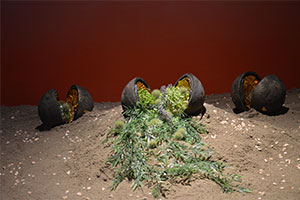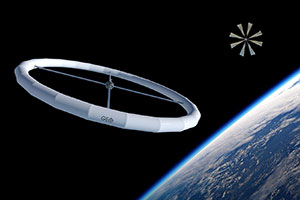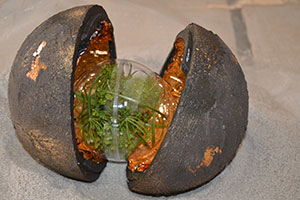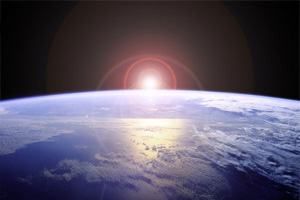EarthSeeds - Humanity's Ultimate Purpose in the Evolution of Life
What is going on?
Viewed from an evolutionary perspective of nature, a possible explanation for the pervasive dominance of the human species over the rest of nature, for its technological prowess, for its insatiable curiosity, for its creativity as well as for its unrelenting exploitation of its habitat in order to satisfy its needs, is that - life on planet Earth must need this kind of species to enable its own evolution and eventual reproduction.
Every living organism is programmed to reproduce its genes. This is a fundamental aspect of nature and only in this way does the survival of the species have a chance in the competitive world that nature has designed. Viewed from this perspective and measured against the enormity of the cosmos, it appears that an evolutionary opportunity for planet Earth has just arrived. Indeed, an “earth system science” view of life has emerged in the sciences that recognizes that the Earth itself is a super living organism that has been referred to as the Gaia hypothesis
In the past 200 years our planet has unleashed the vast energy reserves that organic life has carefully produced and stored over hundreds of millions of years in order to give rise to the mechanisms - humanity and technology - that are necessary to carry and to plant its seed beyond Earth. Birth always involves some risk to the mother and this risk is an essential aspect of nature and evolution. However, when the embryo becomes too large for the womb and its environment becomes increasingly polluted, it is time for the infant to be born.
As all life on Earth is interdependent and interrelated, and as the fundamental purpose of all living organisms is to promote their survival through propagation, it is logical to believe that terrestrial life itself is in some way programmed to insure its survival and to preserve its genetic heritage by engineering the means to plant its EarthSeeds elsewhere - perhaps, even giving birth to another Earth-like planet. Only in this way can life on Earth avoid the possible extinction that could be inflicted on itself by a species that has managed to unlock the power of the Sun, or survive the destruction of the home planet caused by a massive collision from a comet or a large asteroid, or escape certain incineration by the eventual death of our star - the Sun. Terrestrial life growing somewhere else besides on planet Earth would be an insurance that life, as we know it, will indeed continue to survive and perhaps even thrive in the cosmos.
Thus, the human species and its remarkable civilization at the beginning of the 21st century represent the first opportunity for our planet to procreate. While it may be argued that life is resilient enough to survive humanity, however, life may not survive indefinitely without humanity's assistance.




